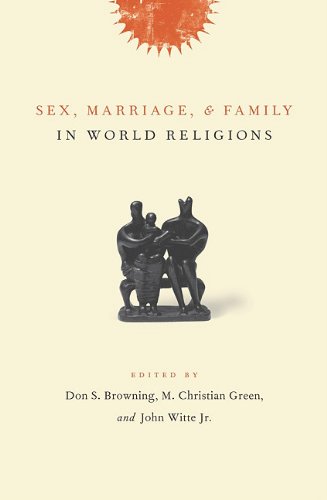

Most ebook files are in PDF format, so you can easily read them using various software such as Foxit Reader or directly on the Google Chrome browser.
Some ebook files are released by publishers in other formats such as .awz, .mobi, .epub, .fb2, etc. You may need to install specific software to read these formats on mobile/PC, such as Calibre.
Please read the tutorial at this link: https://ebookbell.com/faq
We offer FREE conversion to the popular formats you request; however, this may take some time. Therefore, right after payment, please email us, and we will try to provide the service as quickly as possible.
For some exceptional file formats or broken links (if any), please refrain from opening any disputes. Instead, email us first, and we will try to assist within a maximum of 6 hours.
EbookBell Team

4.7
36 reviewsSpanning thousands of years, this new collection brings together writings and teachings about sex, marriage, and family from the Jewish, Christian, Islamic, Hindu, Buddhist, and Confucian traditions. The volume includes traditional texts as well as contemporary materials showing how the religions have responded to the changing conditions and mores of modern life. It reveals the similarities and differences among the various religions and the development of ideas and teachings within each tradition. Selections shed light on each religion's views on a range of subjects, including sexuality and sexual pleasure, the meaning and purpose of marriage, the role of betrothal, the status of women, the place of romance, grounds for divorce, celibacy, and sexual deviance.
Separate chapters devoted to each religion include introductions by leading scholars that contextualize the readings. The selections are drawn from a variety of genres including ritual, legal, theological, poetic, and mythic texts. The volume contains such diverse examples as the Zohar on conjugal manners, a contemporary Episcopalian liturgy for same-sex unions, Qur'anic passages on the equality of the sexes, the Ka--masu--tra on husbands, wives, and lovers, Buddhist writings on celibacy, and Confucian teachings on filial piety.
Contributors include: Michael S. Berger, Emory University; Azizah Y. al-Hibri, Richmond School of Law; Alan Cole, Lewis and Clark College; Paul B. Courtright, Emory University; Patricia Buckley Ebrey, University of Washington; Raja M. El-Habti, Muslim Women Lawyers for Human Rights; Luke Timothy Johnson, Emory University; Mark D. Jordan, Emory University